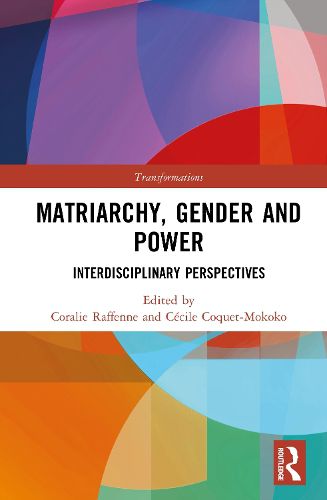Readings Newsletter
Become a Readings Member to make your shopping experience even easier.
Sign in or sign up for free!
You’re not far away from qualifying for FREE standard shipping within Australia
You’ve qualified for FREE standard shipping within Australia
The cart is loading…






This book explores the conceptualizations of female power through the notion of matriarchy in a variety of historical, cultural and epistemological contexts.
Matriarchy has been both marginalized, and even derided, as an object of study albeit consistently referred to as a symbol of female power. The lack of serious engagement with matriarchy has stifled critical inquiry into alternative ways of organizing gendered power, and this gap is that this book seeks to address. Re-examining matriarchy from a scientific and interdisciplinary perspective, this book aims to move beyond the simplistic binaries of male vs. female power through diverse enquiries into the concept of matriarchy that conceptualizes power not as domination, but as interconnection, nurturing, and community-oriented leadership. Through this approach, the contributions examine the emancipatory possibilities of matriarchy, while also acknowledging the limitations and challenges that come with it.
An interdisciplinary approach having international scope, this work will appeal to postgraduate students and academic researchers of Sociology, Anthropology, History, Art History, Asian Studies, American Studies, African American and Africana Studies, Women's Studies, Gender Studies, and Law.
$9.00 standard shipping within Australia
FREE standard shipping within Australia for orders over $100.00
Express & International shipping calculated at checkout
This book explores the conceptualizations of female power through the notion of matriarchy in a variety of historical, cultural and epistemological contexts.
Matriarchy has been both marginalized, and even derided, as an object of study albeit consistently referred to as a symbol of female power. The lack of serious engagement with matriarchy has stifled critical inquiry into alternative ways of organizing gendered power, and this gap is that this book seeks to address. Re-examining matriarchy from a scientific and interdisciplinary perspective, this book aims to move beyond the simplistic binaries of male vs. female power through diverse enquiries into the concept of matriarchy that conceptualizes power not as domination, but as interconnection, nurturing, and community-oriented leadership. Through this approach, the contributions examine the emancipatory possibilities of matriarchy, while also acknowledging the limitations and challenges that come with it.
An interdisciplinary approach having international scope, this work will appeal to postgraduate students and academic researchers of Sociology, Anthropology, History, Art History, Asian Studies, American Studies, African American and Africana Studies, Women's Studies, Gender Studies, and Law.